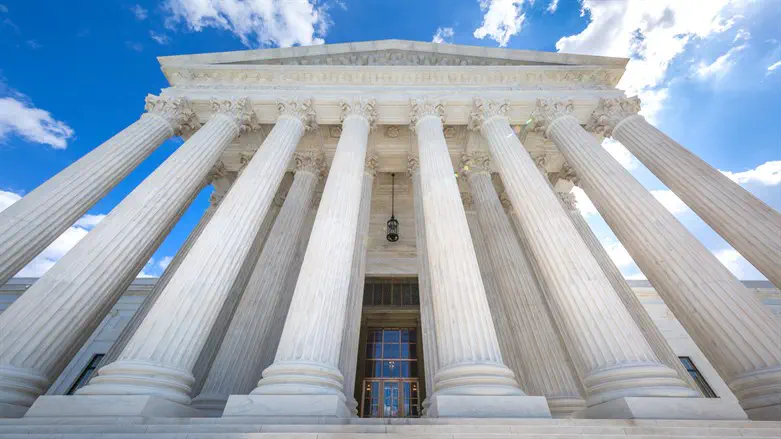
Three prominent Orthodox Jewish organizations in the US affirmed their rejection of abortion on demand following last Friday’s landmark decision by the US Supreme Court – but differed sharply in their reactions to the ruling itself.
On Friday, the Court ruled 6-3 in the case of Dobbs v. Jackson Women's Health Organization to back the constitutionality of a Mississippi law restricting most abortions after the first 15 weeks of pregnancy.
A narrower 5-4 majority moved to strike down two controversial, precedent-setting cases, 1973’s Roe v. Wade, and the 1992 case Planned Parenthood v. Casey.
The Dobbs decision, which ends constitutional protections for abortion, opening the door to comprehensive state bans, drew fire from the Reform Movement, which accused the Court of stripping “women and others who can become pregnant of the fundamental right to make essential health care decisions free of governmental interference,” Rabbi Marla Feldman said as part of a joint statement representing the movement. “Abortion access is a critical component of reproductive health care.”
Orthodox Jewish leaders in the US were united in their rejection of abortion on demand, even as the largest Orthodox organization in America gave a nuanced response to Friday’s ruling.
The Coalition for Jewish Values, a group which represents some 2,000 Orthodox rabbis in the US, said it “welcomed” the Dobbs decision.
“Judaism regards all human life as sacred, including when a fetus is yet to be born. Jewish law permits abortion only in truly extraordinary circumstances. This does not describe the situation in America today, where the overwhelming majority of abortions are done as an elective procedure.”
“The dialog needs to change: if everything is a human right, then, in the end, nothing remains worthy of special protection. We must return to a society that cherishes human rights, and human life.”
Agudath Israel of America, which represents the American haredi community, also lauded the Dobbs ruling.
“Agudath Israel of America welcomes this historic development. Agudath Israel has long been on record opposing Roe v. Wade’s legalization of abortion on demand. Informed by the teaching of Jewish law that fetal life is entitled to significant protection, with termination of pregnancy authorized only under certain, extraordinary circumstances, we are deeply troubled by the staggering number of pregnancies in the United States that end in abortion.”
The Orthodox Union, however, refused to “either mourn or celebrate” the ruling, criticizing both abortion on demand, and “absolute bans on abortion” – though the Court’s ruling does not itself impose any ban.
“We cannot support legislation that does not limit abortion to situations in which medical (including mental health) professionals affirm that carrying the pregnancy to term poses real risk to the life of the mother.”
“The ‘right to choose’ (as well as the “right to die”) are thus completely at odds with our religious and halachic values. Legislation and court rulings that enshrine such rights concern us deeply on a societal level.”
“Yet, that same mandate to preserve life requires us to be concerned for the life of the mother. Jewish law prioritizes the life of the pregnant mother over the life of the fetus such that where the pregnancy critically endangers the physical health or mental health of the mother, an abortion may be authorized, if not mandated, by Halacha and should be available to all women irrespective of their economic status. Legislation and court rulings, federally or in any state, that absolutely ban abortion without regard for the health of the mother would literally limit our ability to live our lives in accordance with our responsibility to preserve life.”
No state current restrictions on abortion bar the procedure in instances where the mother’s life is in jeopardy.
A new “trigger ban” in Missouri – passed in 2019 with the provision that it would take effect if and when Roe v. Wade was struck down – bans nearly all abortions, with the exception of medical emergencies.
